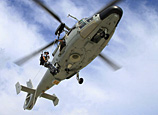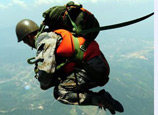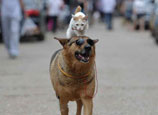
China's Foreign Ministry confirmed on Monday that the Chinese survivor of the al-Qaida terrorist attack in northern Pakistan, as well as the families of the two Chinese victims, have arrived safely at the Chinese embassy in Islamabad.
Ministry spokeswoman Hua Chunying said China is appalled by the violent shooting in the Gilgit-Baltistan area on Sunday, which claimed the lives of 11 mountain trekkers.
The ministry and the Chinese embassy in Pakistan will take every possible measure to help the rescued climber return home and assist the victims' families with repatriation, she said.
"We demand that the Pakistan side guarantee the safety of the survivor, arrest the perpetrators as soon as possible and take effective measures to ensure the security and legitimate rights of Chinese citizens in Pakistan," Hua said.
Two Chinese amateur mountaineers, Yang Chunfeng from the Xinjiang Uygur autonomous region and Rao Jianfeng from Guangdong province, lost their lives in the pre-dawn attack. The pair had joined an international mountain climbing team to conquer the 8,125-meter Nanga Parbat peak, the world's ninth-highest mountain.
Another Chinese team member, Zhang Jingchuan, reportedly hid in a drain and was later rescued.
Zhang, 42, from Yunnan province, called his friends twice for help at 4 am and 7:51 am with a satellite phone after evading the shooters.
The former scout in the military said the attackers ordered them out of the hotel and opened fire without even asking questions, adding that he watched helplessly as his friends were shot dead.
Zhang called Yang's family at 8:20 am to tell them what had happened but he could not be reached until 4 pm when he finally contacted his own family.
Climbing lover
The deaths of Yang and Rao were mourned by mountaineers at home.
Jin Feibao, a famous explorer based in Kunming, Yunnan province, said that Yang and Rao, both his longtime friends, deserve to be called heroes, as their faith and bravery to accomplish their dreams even at the price of their lives cannot be seen in everybody.
"They loved mountains truly and deeply," Jin said. "I knew Yang and we became friends with him in 2004 when we climbed the Muztagata Mountain together. His sense of professionalism and responsibility as a leader left a lasting impression on me."
Chen Siqi, a mountain climber in Zhejiang province and a friend of Rao, said he was astounded by the incident.
"The fact that they did not die in a mountaineering accident but by terrorists' gunfire only brings more grief," Chen said.
Rao had kept updating his Sina Weibo page since he arrived in Islamabad on May 13. On Saturday, he wrote his last sentence, giving advice to other climbing lovers.
"It usually takes five weeks to apply for a mountaineering license in Pakistan. We waited for two months before we got the license for the Nanga Parbat peak on the 20th," he wrote.
Experts warned individual travelers of the severe security conditions in Pakistan's remote areas, saying the killings will deliver a major blow to foreign trekking expeditions.
Ye Hailin, an expert on South Asian studies at the Chinese Academy of Social Sciences, said the violent assault was not specifically targeted at Chinese people, but it is difficult for the Pakistan government to provide armed protection to small group of travelers without knowing their itineraries.
Junood ul-Hifsa, a new faction set up by the Pakistani Taliban to kill foreigners to avenge US drone strikes on Taliban and al-Qaida operatives, claimed responsibility for the attack, AFP reported.
Pakistani officials said on Monday that the bodies of 10 foreign tourists and a Pakistani guide have been identified.
The victims also included an American, three Ukrainians, two Slovaks, one Lithuanian and one Nepalese, they said, adding that all the victims' bodies have been transferred to Islamabad.
















 Surviving climber safe at home
Surviving climber safe at home


![]()
